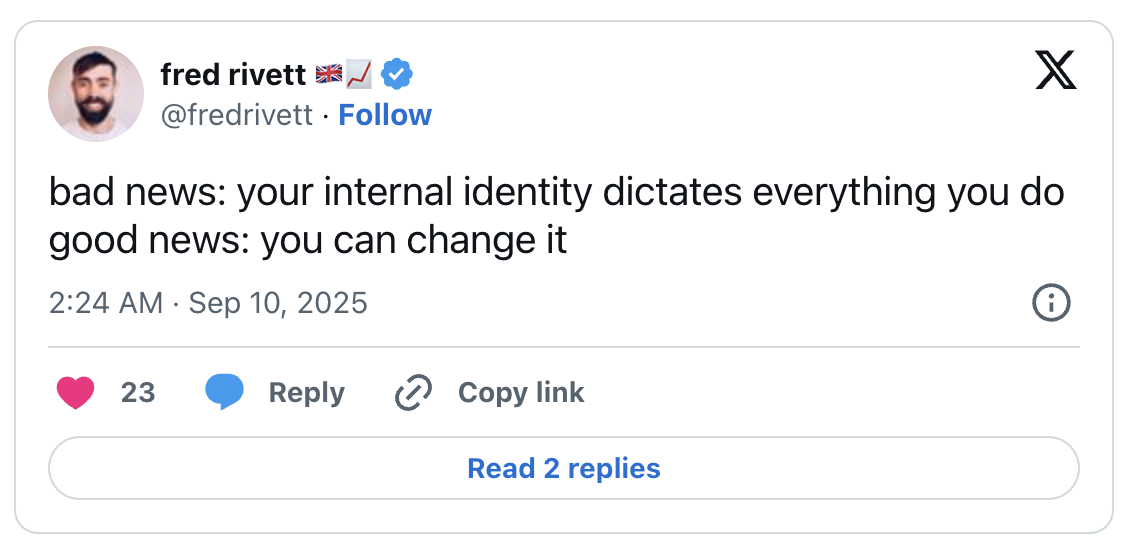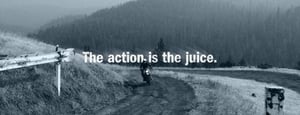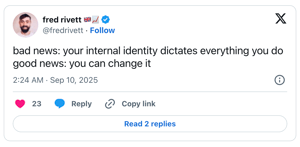Doing things - #443

If you’ve been around these parts for a while, you’ve read about rest, pausing, and disconnecting. In a culture of workism and busyness, I enjoy playing the contrarian. But this dichotomy of mental orientation is a healthy corrective: state vs. action. Being state-orientated is a mode of internal inquiry about how you are doing and feeling, a continual inquiry into your emotions. Doubtless a state-orientation can be helpful, but you can easily visualize the lurking downward spiral: if the answer to a state inquiry is negative, then off you go ruminating on the bad feelings, causing you to feel even worse. Seldom does the adventure of asking if you’re happy spark a moment of happiness. Consider the inverse. Being action-oriented is a mode of internal inquiry about what you’re doing now, what you’ll be up to next, and how it’s going. Your focus is opposite that of the continual inwardness of state-orientation. You might be looking at your performance, but your focus is mostly outward, on the tasks and collaborators and progress. Even if the outcome is poor, you might look at the effort you’ve made and be proud of it. You notice incremental progress and the feeling of having made an effort. When action-oriented, you might even drift into that series of total focus moments they call the “flow state.” Happiness abounds because you’re not evaluating whether you are happy.
While there is still much in favor of rest, of unplugging, of taking a break, and much to resist in our culture of status-chasing and workism, there is clearly not a little danger in an overly-inward focus. Most mental disorders are marked by continuous rumination or persistent self-reflection. Going from thinking-only to actually doing something tends to help. On the whole, being state-oriented tends to worsen your mood while being action-oriented tends to improve it. Feeling anxious? Rather than ruminating on your anxiety, find a hungry person and make them a sandwich. (Maybe the hungry person is you!)
In writing about being action-oriented, there’s a clear danger. The appearance of doing things is not the same as the actual doing. It’s far from it! You imagine the people posting about work on LinkedIn are about as productive, in the moment, as the people who are reading about working while, instead of working, are surfing LinkedIn. It’s ironic to say, as I wear my weekly essay writer hat, but even the seemingly action-oriented corners of our culture seem to prefer to be chattering away. We like nothing more than to pontificate, even about the importance of doing things. Even when you do something, you wonder if there’s an angle to turn it into content for someone else. A while back, a writer wrote this story about how he needed help pushing his project car, when it broke down, back to his shop. His point was that the young folk needed to be engaged with something helpful to do in order to be neighborly. I couldn’t help but wonder how distracting from the work of your project car to collect such stories to use in your thought leadership content. I like the doings uncolored by audiences. No one will know the care with which I wired behind the walls of the basement. Oh shoot.
In the reading today, I’ve found some stories about people who actually did the thing. Sure, they came back to us with a great story (and not a little posturing, see the last essay), but they found happiness in the doing. That’s where the real juice is.
Reading
 What I Found on the 365-Mile Trail of a Lost Folk Hero
What I Found on the 365-Mile Trail of a Lost Folk Hero
The Old Leatherman, a sort of real-life Northeastern Sasquatch, gave me an excuse to step outside my own life.
 Bootstrapped, Profitable, and Proud: The Huckberry Origin Story
Bootstrapped, Profitable, and Proud: The Huckberry Origin Story
Back in 2010, Rich and I were freezing our butts off on a rickety chairlift on the backside of Palisades Tahoe when we decided to go for it.
 Becoming the person who does the thing
Becoming the person who does the thing
Your beliefs shape who you are. Small daily actions are votes for the person you want to become.